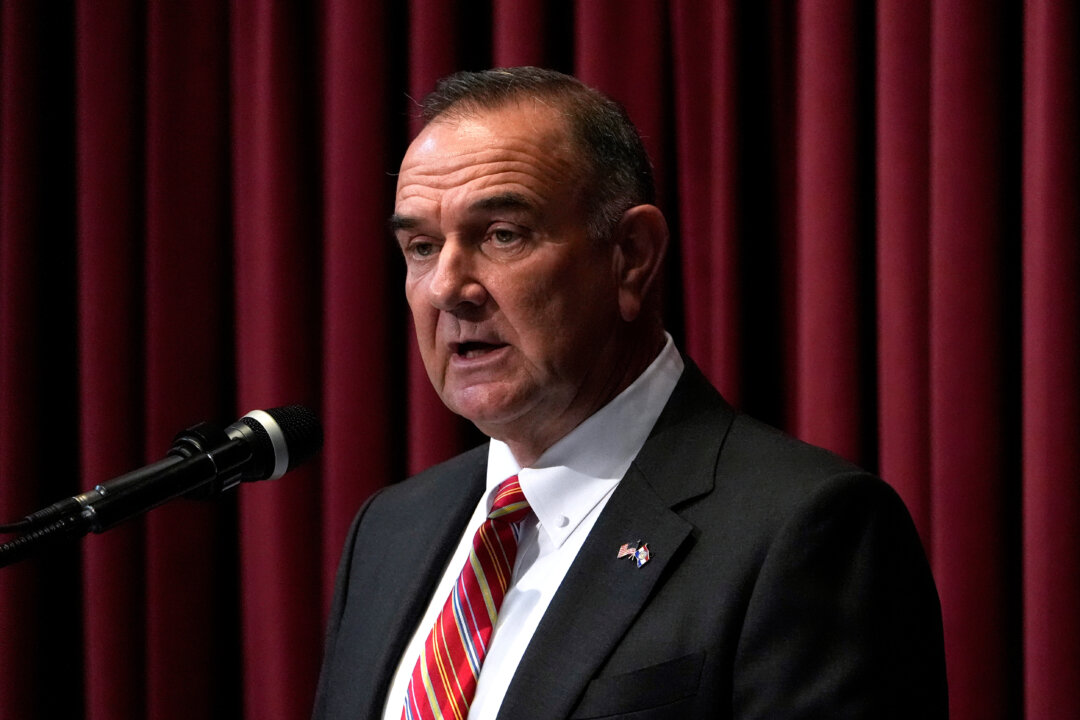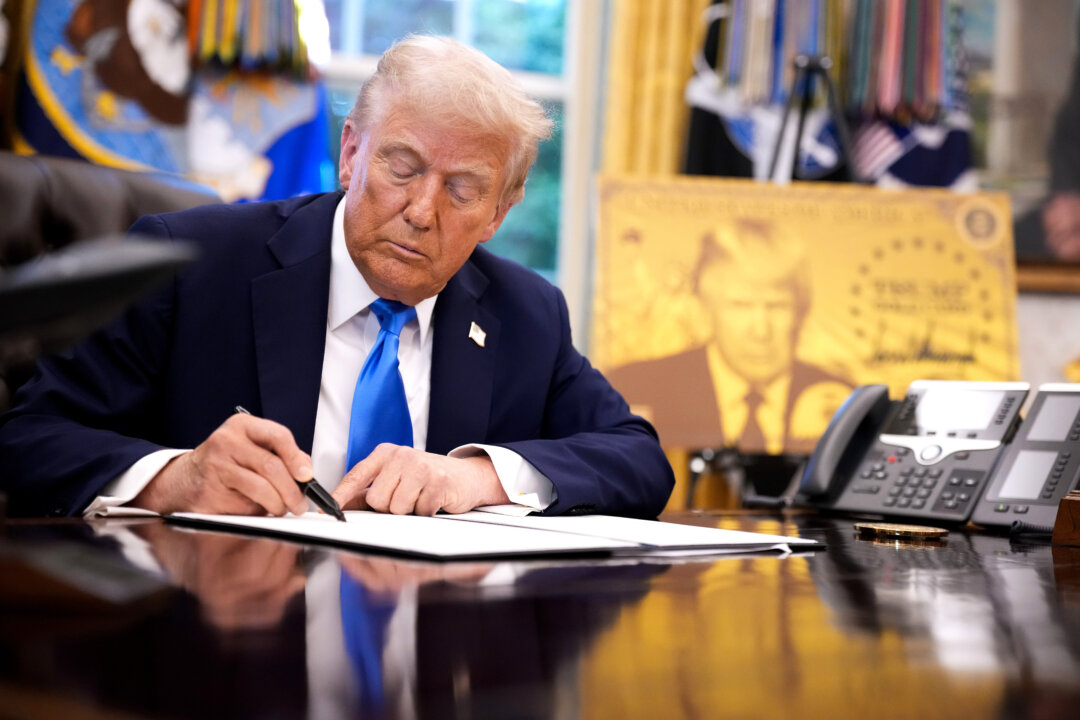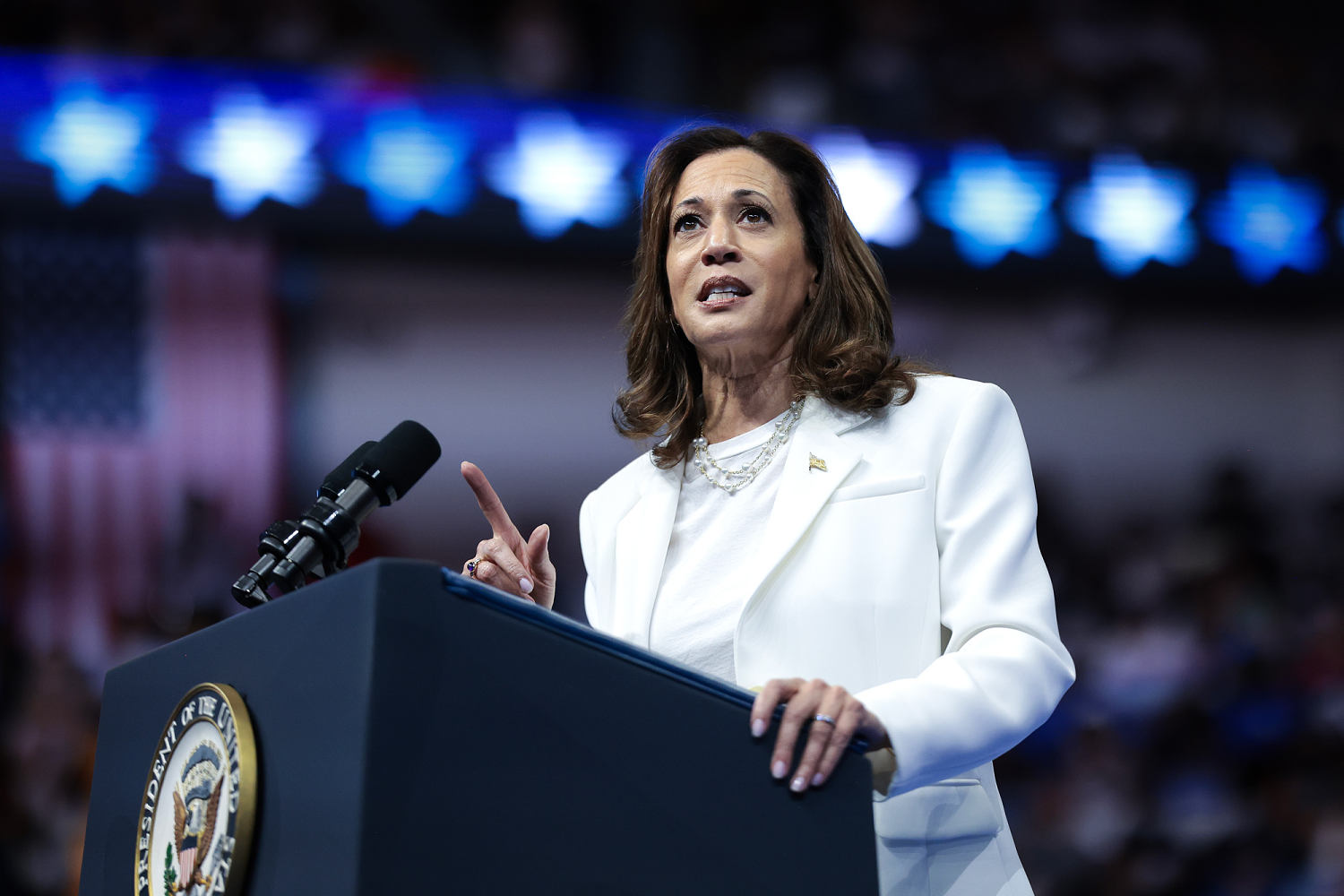Kamala Harris might have used her new book to disparage her fellow Democrats, but her quest for the presidency may not be over just yet.
At least that’s what Carlos Lozada, who has become an expert in the art of the political memoir, says is the major takeaway from 107 Days, the former vice president’s account of her losing the 2024 presidential campaign. Instead, Lozada said in an interview with POLITICO Magazine, the book is aimed at making the case that the loss wasn’t her fault.
Democratic insiders have been seething at her candid tell-all, in which she described her potential running mates in less-than-flattering terms: Pennsylvania Gov. Josh Shapiro was too ambitious, Arizona Sen. Mark Kelly too untested and former transportation secretary Pete Buttigieg too risky because he’s gay, she wrote. But if that candor raised the question of whether Harris is burning bridges, Lozada, who has read all three books authored by Harris — Smart on Crime (2009), The Truths We Hold: An American Journey (2019) and now 107 Days — doesn’t think so.
“This is a book written by someone who still — from my gleaning from the book — aspires to that one big job she doesn’t have yet,” Lozada said.
This interview has been edited for length and clarity.
People have found Harris’ book unusually candid based on her comments about other Democrats. As someone who has read many political memoirs, do you agree with that assessment? What was your response to the excerpts that have gone viral?
I would say that there are moments of candor that have gotten a lot of attention, but I don’t know that the full book necessarily distinguishes itself for its inordinate or excessive candor.
To be very reductionist, there’s two kinds of political memoirs, and the kind you write depends on where you are in your career. If you still have high hopes for bigger jobs, then the memoirs are often more careful in what they say. They don’t want to piss off too many people, or they want to keep their powder dry for some future campaign. They lay out generally nice, positive visions of the country and of policy. Kamala Harris’s prior book, The Truths We Hold, was a bit like that.
Then there’s the second kind of memoir, where you write when you’re basically done with your career and you can just let go, you can unload, you can tell what you really think. And what’s interesting about Harris’ book is that it’s kind of somewhere in between the two. She does enough to annoy some people — whether it’s Josh Shapiro or Pete Buttigieg — but it doesn’t really feel to me that she’s unloading on everything. There’s other areas that she really dances around and doesn’t tell us what she really thinks, for instance, on Gaza.
Excerpts will always seize on those sexy, controversial moments, but when you read the entirety of the book, I was actually hoping for more such moments. I don’t think we really got all that much.
Is this the kind of book you would have expected from Kamala Harris, based on what we know about her personality from public appearances and her previous books?
I would say that her books tend to be careful. She’s not a bomb thrower. She is someone who came up in the Democratic Party, not as an activist, not as a rabble rouser, but taking the very methodical job-to-job kind of steps that would position her for big national office. And so, you know, this book doesn’t feel dissonant from that. This is a book written by someone who still — from my gleaning from the book — aspires to that one big job she doesn’t have yet.
What was Harris’ goal for this book?
This book gives her an excuse for why she lost, right? It’s in the title. The title is not just the framework of the book and the duration of the campaign. The title is also the reason that she gives for having lost it. She says the campaign was too short, I only had 107 days, and that wasn’t enough to lay out my economic vision or to really connect with voters. One hundred and seven days were not, in the end, long enough to accomplish the task of winning the presidency.
The calendar is a structural impediment, right? It’s not a strategic one. It’s not an ideological one. It’s out of her hands.
The interesting thing about it is that, even in her own telling, the truncated calendar helped her. She writes about how, when Biden officially announced he wasn’t going to seek reelection, she was making all these phone calls to Democratic Party bigwigs trying to enlist their support. And when people would say, “Oh, you know, do you think we should have some kind of process to pick the next nominee?” she would knock that down and basically say, “Who’s got time for that now?” So more time would have helped her win the election, but the short time is actually the case she made for why she had to be the nominee. That was kind of interesting.
Yeah, it felt like by dividing the chapters up by days in the campaign, she wanted to showcase how little time she actually had.
I guess. As a reader of the book, I would have appreciated a more thematic approach, rather than a blow-by-blow of, 67 days till the election, 63 days till the election — each chapter has that kind of countdown. In some ways, the style was a little bit more like journalistic accounts of a campaign. But when it’s from the candidate herself, I wanted something more thoughtful than a countdown.
She lost in November, and now it’s September. I don’t know exactly how quickly they put it all together, but it takes a while to physically publish the book, to edit the book, to lay it out. So she had to have finished this book some bit of time ago, right? I kind of wish she had taken more time. She says her campaign needed more time to win. I think this book needed some more time to really dig in a thoughtful, deliberate way, like what actually happened here. But instead, like the campaign it describes, it feels a little rushed.
Is Harris’ book an outlier in the recent stream of political books in any way? Or does it fit into some larger trend of political memoirs?
Even what I just said about how I wish the book had had more time — that’s not a thing that’s happening now. People are trying to get their books out as quickly as possible. What It Takes by Richard Ben Cramer is generally considered the best book about a presidential campaign. That book was about the 1988 presidential campaign and it dug deep into six of the candidates. It came out in 1992, four years after the campaign. Could you possibly fathom that happening now? There’s no way. It would have to be half as long and twice as quick. Harris is certainly consistent in what I think is the acceleration of these books.
Even if she just wanted to tell the story of the campaign and of why she lost, what gets people excited about these books is the early excerpts. It always has to be like, “OK, well, what are the little things that are going to go viral?” Michael Wolff’s Fire and Fury kind of set a template for books about the Trump presidency. And then everyone just tried to start writing books like that.
I don’t see why this had to come out so soon, in a way that I think hindered her ability to sort of think more deeply and thoughtfully about what actually happened here.
What purpose does Harris’ book serve now?
What it doesn’t do, what this book doesn’t accomplish, is really lay out any kind of counter vision to Trumpism, or to what Donald Trump is doing early in this second term. It’s not any kind of manifesto. A lot of these political memoirs tend to be a mix of memoir and manifesto — lay out some clear vision for the future, whether of the country or of the party. This is absolutely not that. In fact, at the end, she says we need to come up with a blueprint, which she doesn’t have. Let me find the line, it’s right near the end: “We need to come up with our own blueprint that sets out our alternative vision for our country. A blueprint on how we will lead a government that truly works for the American people.” And so I wrote in the margins, like, did you do it? She didn’t just have 107 days. She had four years as vice president. And so, if now you’re saying, “Gee, we should come up with a blueprint,” I feel like you’re behind the eight ball a little bit. And so it’s not a book that lays out a political vision, or a policy vision or an ideological vision. I have to think of it as a book that attempts to rehabilitate her after her defeat, and to suggest that it wasn’t necessarily her fault, meaning that she still has some juice for the future.
Is she still running for president, or burning bridges?
What I should say first off is that I have no idea, right? Because the one person who can answer that is Kamala Harris. But simply from reading the book, it does feel to me like a book of someone who is not ready to let go of the ambitions of the presidency. I don’t know if she’ll run.
I guess I’m of the belief that someone who really thinks they should be president of the United States, to the point that you run for it multiple times, those people don’t stop thinking they should be president of the United States. I don’t think it’s an ambition that is like, “Well, I got it out of my system. Now I’m done.” And so, not just based on the book, but just based on watching politicians for a long time, especially senators, who notoriously always think that they should be president, I would be surprised if it’s not something that she would be actively exploring. She also walked away from the chance to run for governor of California, which would suggest that she may have other jobs in mind.
Is there anything in the book that suggests that?
Sometimes what isn’t said is as revealing as what is said. No, there’s not a moment in the book where she gives you a wink-wink, she’s still looking for the presidency. But the things that she backs away from, like the Democrats and their positions on Gaza, were a big point of debate during this campaign, and she’s very reluctant to say anything super definitive on that. She says, Look, the rhetoric on both sides has become too heated. People refuse to see that there are any innocents on the other side. And I think that’s inhuman. It’s very generic, right? She doesn’t lay out a position that could come back to haunt her. That felt like a moment to me where the caution is clear, and the reason to be cautious and not just say what you think is if you still are weighing the political calculations.
In fact, she kind of dances around it at the end, in the afterward. She says, “I’ll no longer sit in D.C. in the grandeur of the ceremonial office. I will be with the people, in towns and communities where I can listen to their ideas on how we rebuild trust, empathy, and a government worthy of the ideals of this country.” Anyone who’s talking about listening tours is running for something. That feels like pretty generic fill-in-the-blank campaign talk. But again, that’s interpretive on my part, she doesn’t flat-out say it.
Who do you think is the audience for the book? Certainly not the Democratic insiders seething about her book tour. Is it meant for her fans? Skeptics? Democratic 2028 primary voters? Someone else?
These books don’t come in isolation. We just had a huge discussion about Original Sin, the Jake Tapper and Alex Thompson book about Biden. This book is not unconnected from that one, in the sense that it also puts a lot of the onus on Biden. And she, in fact, one of the biggest regrets is that she says, was it grace or was it recklessness to leave the decision to them? If the reason that I lost is because the campaign was so short, whose fault is that? It was Joe Biden. And since everyone’s dinging Joe Biden for everything, this book is her adding to that chorus.
With a book like this, it has: people who actually read it, people who buy it and don’t end up reading it, and then people who absorb it, just because of the discussion. It’s because it seems to be everywhere. And so, especially for that last sort of concentric circle — people who may not even read it or buy it, but just end up feeling like they know what it says — they’ll know that the message of the book is that Joe Biden stayed too long. Maybe I should have said something about that, but then the campaign we had to run was way too short. So it kind of absolves her, or at least seems intended to try to absolve her — in which case, she’s not damaged goods. She’s not the person who blew the 2024 race, so we should give her another chance, you know? Some people feel it’s aimed for insiders, but I don’t really think so. I think it’s a broader message that, “This wasn’t really my fault.”
You’ve read all three of Harris’ books now. What is your portrait of her based on what you’ve read?
To me, she’s a very interesting mix, because she’s both very ambitious and very careful. She’s not much of a risk-taker in a field that needs to take risks. And I don’t mean ambitious in a pejorative way. Which politician is not ambitious? You need a healthy ego to look in the mirror and say, “I can be president.” That’s not unique to her, by any means. But what’s interesting to me is the mix of caution alongside the dedicated ambition.
There’s one moment in the book, the only moment that I don’t believe for a second: She says that she hadn’t really ever thought about being president until [TV personality] Lawrence O’Donnell, of all people, approaches her. And this is when she’s already a senator. Oh, come on! In 2009, [TV host] Matt Lauer interviewed her and asked her, so what does it feel like when people talk about you as the female Barack Obama? I’m guessing she thought about it then, when people are comparing you to the person who was just elected to the presidency. And so that felt like trying too hard to say, “Oh, I don’t really care about that.”
In media appearances promoting the book, Harris has appeared to soften some of her more pointed comments. What do you make of her book tour and what that says about her?
I think it’s pretty standard in political books that get a lot of attention to say something very tough in the book, and then when you’re talking about it, walk it back slightly. That is not atypical. I don’t think it says something unique about Kamala Harris. It says something about the job she has, a.k.a., a politician.
.png)













 English (US)
English (US)